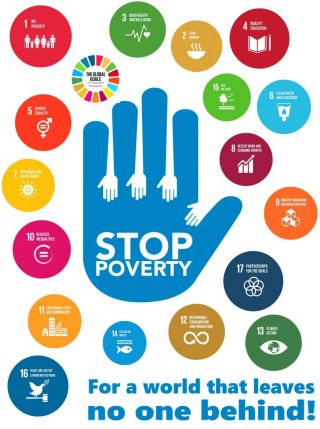Time for Government to commit to eradicating poverty

The Government must this year set a 5 year plan for eradicating poverty in Ireland. This is one of the key policy proposals in ‘Social Justice Matters: 2019 guide to a Fairer Irish Society’, our annual Socio-Economic review published today.
With the uncertainty being created by Brexit, including the potential impact on our economy, this kind of clear policy commitment is all the more important to protect the most vulnerable in Irish society. Ireland needs this kind of centralised policy commitment to mobilise a multi-departmental approach to the crisis of poverty.
15.7 per cent of the Irish population currently live at risk of poverty. 1 in 5 children in Ireland today are living in households below the poverty line. 109,000 people with a job are living in poverty in Ireland today. Despite this, we never hear the government talking about those people as a distinct category. Nor do we hear policy commitments based purely on alleviating poverty.
At such an uncertain time, domestically and globally, the government needs to make a centralised commitment to lift our most vulnerable out of poverty and to prevent any more people from falling into poverty. Most of Ireland’s economic fundamentals have been on a positive trend for many years now. There is no acceptable reason why Ireland shouldn’t be capable of eradicating poverty and improving the living standards of all.
Poverty needs to be addressed as a singular policy issue with a multi-departmental approach if we are to achieve this. Without this kind of commitment, the consequences for the poorest in our society will reverberate down to the next generation.
Policy solutions to poverty would include ensuring social welfare payments are set at an adequate level and are indexed, making personal tax credits refundable, introducing a cost of disability payment, and introducing a living wage.
Having access to high quality public services such as education, healthcare, and appropriate accommodation is also important. Without adequate social infrastructure and services, it is impossible to achieve the minimum standard of living to which all citizens, from children to older people, are entitled to. In order to provide high-quality public services Government needs to collect adequate revenue to resource them. This will require increasing the overall tax take.
Achieving these policy goals requires joined-up thinking from across government departments with a clear common goal being pursued by means of a centralised plan for eradicating poverty. This is not only a measurable policy goal, but an achievable one in a country that has such vast wealth.
This year’s 2019 guide to a fairer Ireland outlines all of the key social justice issues in Ireland today as well as spelling out potential policy solutions. It is necessary for the Government to begin setting real goals for these issues, the same way they recently set goals for housing development and the same way they have traditionally set goals for business development and foreign direct investment.